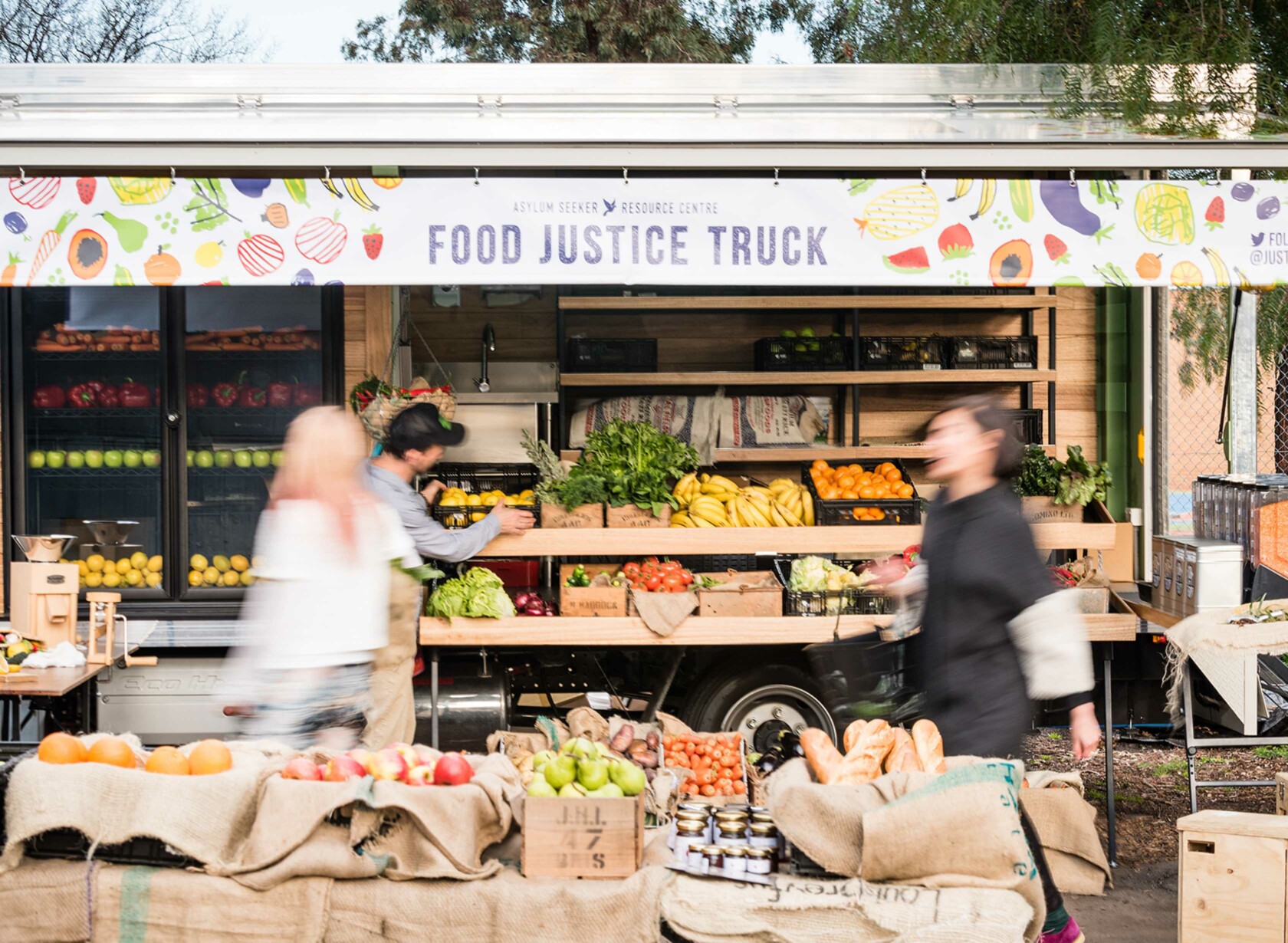Mobile food market tailored to those in need
The Food Justice Truck (FJT) is an award-winning mobile grocer, providing a fun, healthy and ethical shopping experience to all comers, and a life-changing 75% discount to people seeking asylum.
Our client, the Asylum Seeker Resource Centre (ASRC), located in Melbourne, is the largest in the southern hemisphere. Their existing meals and food-bank programs ensure basic food security for its 1400 ASRC members. However, there are nearly ten times this many asylum seekers spread throughout Victoria, 70% experiencing food shortages. A large number of these people have no work rights; some receive reduced government benefits, and others have no income at all. In order to address this issue, the ASRC identified the need for a mobile food truck that could offer these vulnerable people food at a rate they can afford by subsidising full priced items sold to the general public.
Recognising the potential for this project to create real change and positively impact on people’s lives, we offered our services pro bono to the ASRC. We facilitated a collaborative design thinking workshop to ensure all key stakeholder’s voices were heard. We then took the insights and ideas generated during this session and developed them into a practical design solution.
The result is the world’s first retail model that enables the general public to invest in locally sourced produce whilst also supporting the re-investment of profits into the provision of fresh food for people seeking asylum, at a price that they can afford.
The hybrid diesel/electric truck is clad with reclaimed timber, staffed by volunteers and stocked entirely with Victorian and Australian produce. This creates a triple-bottom-line service - environmentally sustainable, socially responsible and financially viable.

2015 Premier's Design Award Joint Overall Winner
2015 Premier's Design Award Best in Category

2015 Good Design Selection



The Team We believe good design happens by expert people working as a team.
Brett Capron

Lorrin Windahl

Bernie Walsh

Jack Magree

Daniel Booker

Graeme Marshall

Joe La Delfa


Collaborative approach to design
Cobalt facilitated a collaborative design thinking workshop, early in the design process, involving a broad range of stakeholders; ASRC asylum seeker members, volunteers, staff, fruit wholesalers, marketing professionals, designers and a zero-waste restaurateur. By tackling challenges and developing ideas collaboratively, the session led to several key insights that had a major impact on the design of the vehicle and the entire user experience. They included the importance of food providence, education opportunities for both user groups, and produce crates hanging on the side of the vehicle. These insights were then fed into a sketch based concept design stage - turning ideas into feasible design concepts.
The refined concept designs were then handed over to VMS Group, who fabricated the custom truck build – refining mechanical details while faithfully maintaining the design intent generated from the collaborative workshop insights. ASRC staff and Cobalt Design team members were engaged throughout the vehicle fabrication process to ensure all touch-points of the vehicle were well resolved – taking into consideration the needs of all stakeholders (staff, shoppers and the community).
The resulting FJT affords a welcoming marketplace at schools, community events and public places. It’s a convenient shopping solution with broad community reach. Shoppers are also passively educated about asylum seekers, local food producers, minimising waste, recycling, and foods from asylum seekers’ home countries.

Other Work
KeepCup
The original reusable coffee cup
Yarra Trams Tarzan Handle
A signature element within the world's largest tram network












